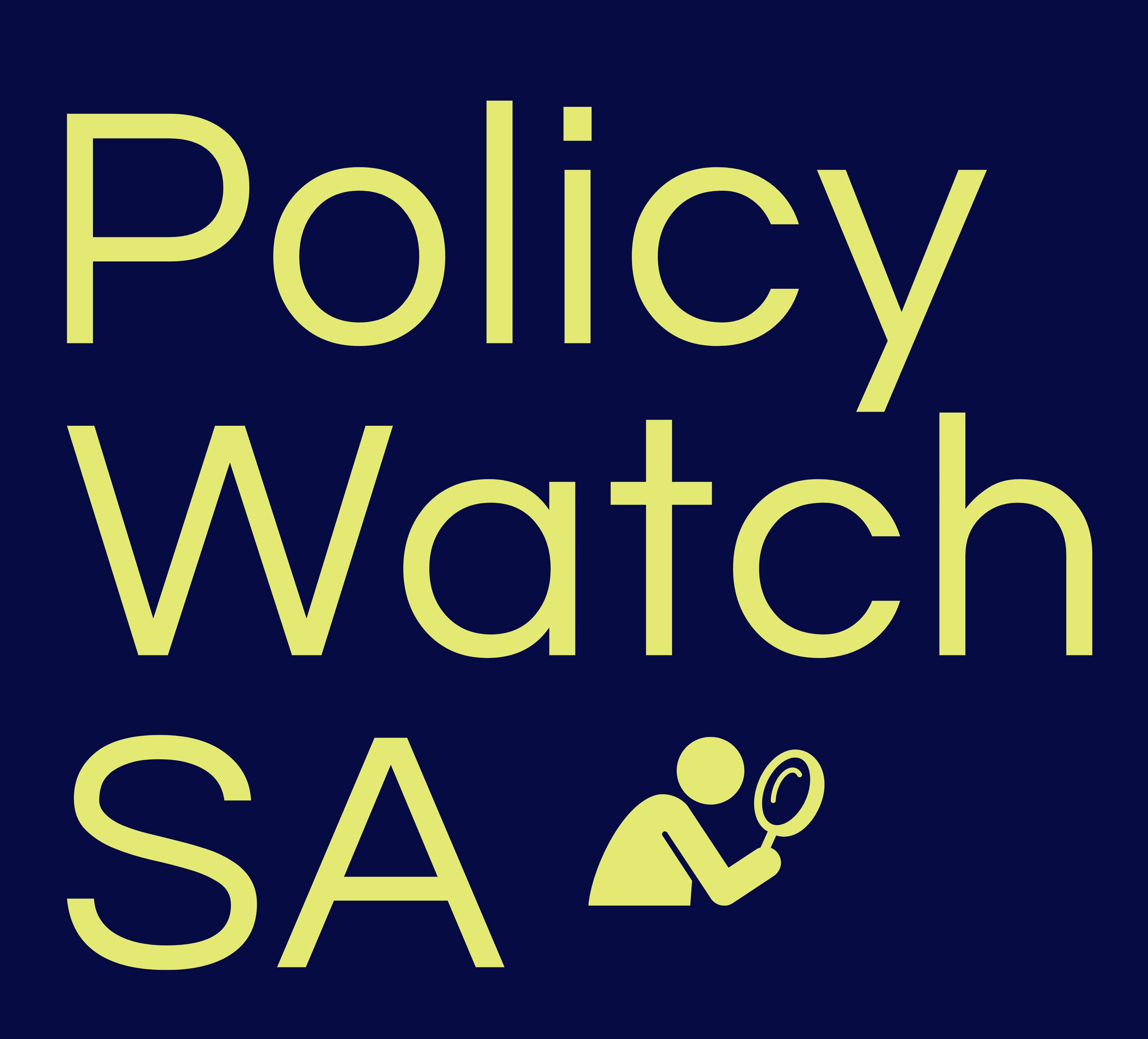PARLIAMENTARY DYSFUNCTION ... or national government's (or both)?
- Policy Watch SA

- 6 days ago
- 2 min read
Updated: 5 days ago

For years, members of the National Assembly's Justice & Constitutional Development Committee have complained regularly about rushed legislative processes. Undoubtedly the most efficient of South Africa's parliamentary engine rooms, the committee's membership over the years has usually included several MPs with a legal background. In their former lives, some have even practised law or taught at universities.
Now presided over by African National Congress (ANC) MP Xola Nqola (a trained lawyer), the committee's past chairs (all ANC) have included Bulelani Magwanishe (a trained lawyer), Advocate Madipoane Mothapo and Professor Mathole Motshekga.
Long-serving committee stalwarts most notably include Democratic Alliance (DA) MP Advocate Glynnis Breytenbach and Steve Swart (a trained lawyer and African Christian Democratic/ACDP Party MP).
Against that backdrop, during a meeting of the committee on 7 May 2025 – when members were briefed, among other things, on the latest Judicial Matters Amendment Bill – the DA's Glynnis Breytenbach went to town, as tends to be her custom. According to a Parliamentary Monitoring Group report, her concerns included the Department of Justice & Constitutional Development's 'practice of submitting legislation to Parliament near the end of Constitutional Court-imposed deadlines' (of which other national departments are also guilty, as the ACDP's Steve Swart apparently pointed out).
Breytenbach's input was triggered by a clause in the recently tabled Judicial Matters Amendment Bill, the intention of which is to remedy defects in the 2000 Promotion of Access to Information Act (PAIA) identified in a 23 August 2023 Constitutional Court ruling on a matter between Arena Holdings and the South African Revenue Service. A memorandum on the Bill's objects notes, among other things, that the Act's prevailing provisions 'preclude access to tax records by a person other than the taxpayer even in circumstances where the requirements of section 46 of PAIA are met'.
Over the years, it has become common practice for Parliament to approach the Constitutional Court for deadline extensions, which tend to be granted. Occasionally, even these deadlines have been missed and a second extension requested. Which may be why Swart reportedly remarked that a 'consolidated list of all pending Constitutional Court deadlines' would be helpful.
Of course, as anyone familiar with the 2022 Blind SA Constitutional Court ruling knows only too well, it matters not a jot to most other National Assembly committees if deadlines are missed. The Trade, Industry & Competiton Committee was apparently blissfully unaware of that judgment's implications for the beleaguered Copyright Amendment Bill – as we wrote in an earlier post.
But Parliamentary Constitutional & Legal Services are not. They regularly report to the National Assembly's Programming Committee on approaching Constitutional Court deadlines – although to what avail isn't clear.
Begging the question, 'How realistic is it to expect more spring in the step of parliamentary committees or the departments they oversee under a Government of National Unity?'.





Comments